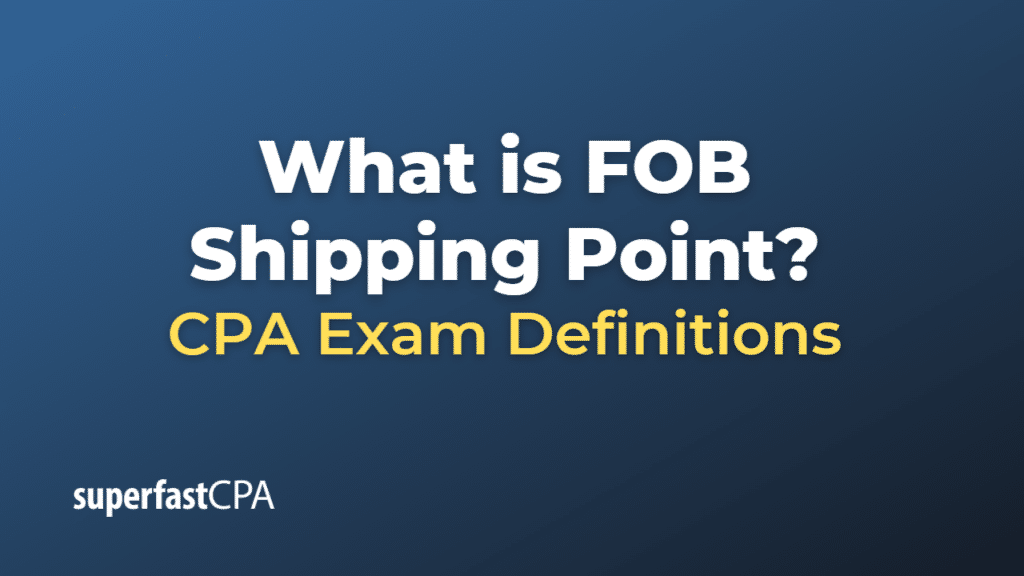FOB Shipping Point
FOB Shipping Point, also known as FOB Origin, is a term used in international commercial law that indicates the point at which ownership of goods is transferred from the seller to the buyer. Under FOB Shipping Point terms, the transfer of ownership and the responsibility for goods occurs at the seller’s shipping dock, where the goods are loaded onto a delivery vehicle.
This means that the buyer takes ownership at the moment the goods leave the seller’s premises. From that point forward, the buyer is responsible for transportation costs and assumes the risk of damage or loss during transit. In other words, the buyer is responsible for the goods during the shipping process.
For example, if a manufacturer sells products to a retailer with terms specified as “FOB Shipping Point,” the retailer takes ownership of the goods as soon as they leave the manufacturer’s shipping dock. The retailer is then responsible for the freight charges and bears the risk of damage or loss during transport. Once the goods leave the manufacturer’s dock, they would be recorded as inventory by the retailer, not the manufacturer.
Example of FOB Shipping Point
Suppose a computer manufacturer in California sells a batch of laptops to a retailer in New York, with the terms specified as “FOB Shipping Point.”
- The manufacturer prepares the shipment and loads it onto a delivery vehicle at their warehouse. As soon as the laptops are loaded and the delivery vehicle leaves the warehouse, the ownership of the laptops is transferred from the manufacturer to the retailer.
- The retailer now owns the laptops and would record them as inventory in their accounting records. On the other hand, the manufacturer would remove the value of these laptops from their inventory.
- The delivery vehicle starts its journey from California to New York. During this journey, if any damage or loss happens to the shipment, it is the responsibility of the retailer, not the manufacturer, because the retailer owns the laptops.
- The retailer also pays for the freight charges from California to New York, as the term “FOB Shipping Point” means that the buyer (the retailer, in this case) is responsible for the delivery costs.
- When the laptops arrive at the retailer’s store in New York, the retailer doesn’t need to do anything in terms of changing the accounting records for inventory, because they already recorded the laptops as inventory back in California when they took ownership.
This example illustrates how “FOB Shipping Point” determines when the ownership of goods is transferred from the seller to the buyer and how it affects the recording of inventory on their balance sheets.













